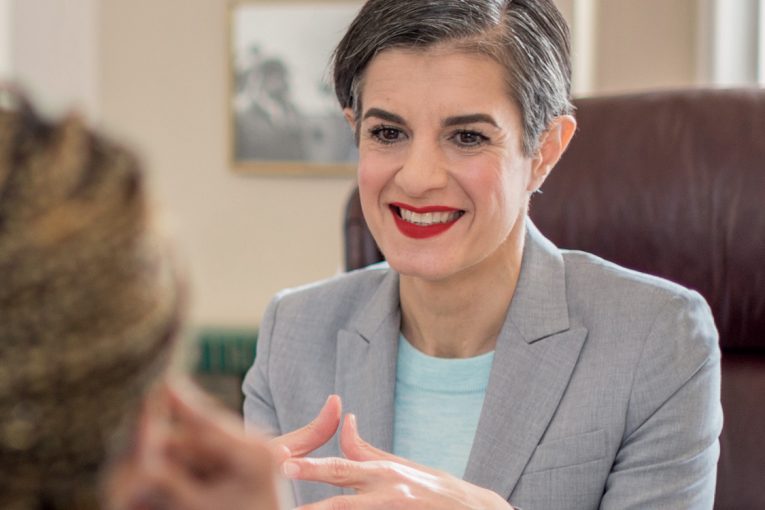

Earlier this week the Vanguard reported on efforts by the Missouri Governor, Attorney General and Legislature to strip St. Louis Circuit Attorney Kim Gardner of her powers, by giving the AG the power to directly prosecute certain cases. In Virginia something similar is happening, except that the impetus is coming from the Arlington County Circuit itself.
On March 4, 2020, the Circuit Court entered an order that would require that the Commonwealth Attorney in Arlington justify all charging decisions and writing—decisions on whether to dismiss, charge or even settle cases in her jurisdiction. As one source put it, “decisions that are at the core of the exercise of independent prosecutorial discretion.”
The order came just two months after Parisa Dehghani-Tafti took office and “creates new limitation and obligations for Commonwealth’s Attorneys in Arlington, running afoul of Virginia’s Constitution, its statutes, and its precedential case law.”
In a petition for writ of prohibition and memorandum that was submitted by this week over 60 criminal justice leaders, they called the move “highly unprecedented” and “sweeping” and questioned the constitutionality of the move.
The writ was accompanied by an amicus brief supporting the requested relief, signed by 63 current and former prosecutors—including 55 current elected prosecutors (district attorneys and attorneys general from around the nation, eight of whom are Virginia Commonwealth attorneys).
In their brief, amici argue that the circuit court’s order is a clear violation of well-settled prosecutorial independence and an infringement on the will of the People of Virginia.
“The Circuit Court’s order in this case is the latest example of an unsettling trend nationwide of interference with elected prosecutors’ efforts to promote evidence-based approaches that move away from past decades of ‘tough on crime’ punitive policies,” said Miriam Krinsky, Executive Director of Fair and Just Prosecution, the organization that coordinated the amicus brief.
Krinsky added, “Voters overwhelmingly elected CA Dehghani-Tafti to reform the criminal legal system. While courts did not previously interfere with prosecutorial discretion when it was used to fuel mass incarceration, the circuit court’s attempt to undermine a new vision of justice, that promotes safer and healthier communities, runs counter to decades of well-settled prosecutorial autonomy.”
The amici argue that the Circuit Court’s order undermines prosecutorial discretion that is both inherent in the role of the prosecutor and critical to the effective operation of our justice system. Prosecutors—not judges—retain the power to make decisions about what cases to prosecute or dismiss.
As amici stress in the brief, “Especially when making charging decisions, prosecutors use this discretion to carry out their duties as ministers of justice and in accordance with their ethical obligations. They are ethically bound to pursue the interests of justice in deciding what cases to prosecute or dismiss.”
“Prosecutors have a legal responsibility to exercise their discretion to protect the safety and well-being of their communities,” said Karl Racine, Attorney General for the District of Columbia, a signatory on the brief. “Allowing unlimited judicial interference in the decision making of democratically elected prosecutors undermines public safety and their ability to effectively represent their constituents.”
The amici also stress that this order could actually compromise public safety by requiring the release of sensitive information underlying charging and dismissal decisions, which could endanger witnesses and interfere with other ongoing investigations.
It would also put a strain on already limited resources, forcing the prosecutor’s office to spend precious time on administrative duties to comply with the order, rather than on investigating and pursuing cases involving more serious offenses.
Among the signers of the amicus brief are Aramis Ayala from Florida, who chose to not seek reelection after the state took away her discretion on death penalty cases; Wesley Bell and Kim Gardner from St. Louis County and St. Louis City who this week have been fighting the governor and state legislature; and Larry Krasner from Philadelphia who has seen numerous attempts to curtail his prosecutorial discretion.
St. Louis County Attorney Wesley Bell pushed back this week at efforts to curtail Kim Gardner’s prosecutorial discretion.
In a statement, Bell called this “an immoral attempt to usurp the will of the voters” because the State Attorney General’s office is not responsible to those who elected Gardner.”
“The reality is that certain legislative leaders care more about posturing than they do about the health and safety of the residents of Missouri and St. Louis,” Bell said.
The amicus raises issues that have “national significance,” the brief states. “Although amici’s views on what offenses do and do not warrant prosecution may differ, amici are fully aligned in their commitment to prosecutorial independence.”
For that reason, “They are deeply troubled by the Arlington court’s erosion of settled and longstanding principles of prosecutorial discretion, and the court’s apparent effort to intercede in the policy and resource allocation decisions of an elected prosecutor.”
“Prosecutors are the gatekeepers to the justice system and the autonomous function of our offices must be protected,” said Buta Biberaj, Commonwealth’s Attorney for Loudon County, Virginia, another signatory on the brief.
Biberaj adds, “We are entrusted by the people we serve to make decisions that prioritize safety and pursue justice. This overstep of judicial authority puts the wellbeing of the community at risk and diminishes the ability of the community to determine what public safety looks like and to hold their elected prosecutor responsible for pursuing that vision.”
—David M. Greenwald reporting
To sign up for our new newsletter – Everyday Injustice – https://tinyurl.com/yyultcf9

